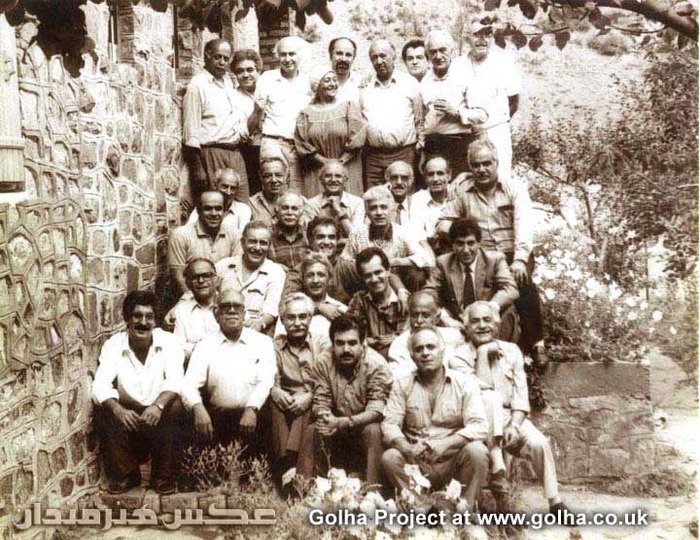Marziyya

Biography
Marziya (1926-2010), Neé Ashraf al-Sadat Murtaza’i, a leading female vocalist whose repertoire included classical singing, lyrical songs, and popular ballads, between 1956-1978 she became one of the most talked-about female vocalists to be featured on the Golha radio programmes. Supported by her godfather, A. Armand, she entered the profession of singing without receiving any formal training in the classical radif. Her talent was discovered by Davud Pirniya, Murtaza Mahjubi, and ‘Ali Tajvidi and she was considered, between 1955-59 at least, as the best female vocalist on the Golha programmes, one who was able to sing popular songs (tasnif) and classical vocals (avaz) with equal ease. In her youth, she joined Barbad Ensemble which was under the supervision of Isma‘il Mihrtash. Simultaneously, while performing in musicals in the theatre, she also studied with various maestros (such as Isma‘il Mihrtash, Ibrahim Mansuri, ‘Abdu’llah Davami, Abu’l-Hasan Saba, and Murtaza Mahjubi) and also became slightly adept at playing the setar and the piano for a while. Her resonant and powerful voice and also her charismatic character impressed Pirniya, Mahjubi, and Tajvidi. Accompanied by numerous composers, musicians and soloists, she performed in altogether 170 programmes of Golha-yi javidan, Golha-yi rangarang, Yik shakh-i gul and Golha-yi taza series. Numerous recordings of her performances have been released between the years 1947-2009 and are currently in wide circulation in the form of gramophone records, cassettes, and CDs. Despite her popularity as well as her social, political, and artistic connections with high officials of the Pahlavi regime, her popularity waned away from 1969 onwards, when she was surpassed in popularity by other vocalists performing in the Golha programmes, such as Ilahi, Puran, and ‘Ahdiyya. She lived in Europe and the United States from 1994 onwards pursuing her activities under a political guise (she became affiliated with MKO, a political group advocating the overthrow of the Islamic Republic of Iran). Marziya was a vocalist whose popularity was more indebted to her colourful personality rather than to her art. She owed a large part of her popularity and prestige to her performances in the Golha programmes. Her works include a 45 cassette album which contains a selection of her Golha programmes as well as her lyrical songs (Tehran: Chishmak 1978).
Sayyid 'Alireza Mir'alinaqi